The week before last, I must’ve gotten a hundred emails about the “Joy of Cooking?” study that was making its way around the news last week. (Thanks, guys!) In the study, for those of you who missed it, sociologists challenged Michael Pollan’s theory that reforming the food system starts with the home cook, concluding that it’s an elitist concept that disregards financial realities and time pressures, and places unrealistic demands on parents, particularly women. I encourage you to read the study, then head over to the Room for Debate page at the New York Times to hear a bunch of us weigh in on one of the issues raised, namely: Are we glorifying the home-cooked meal? What do you think?
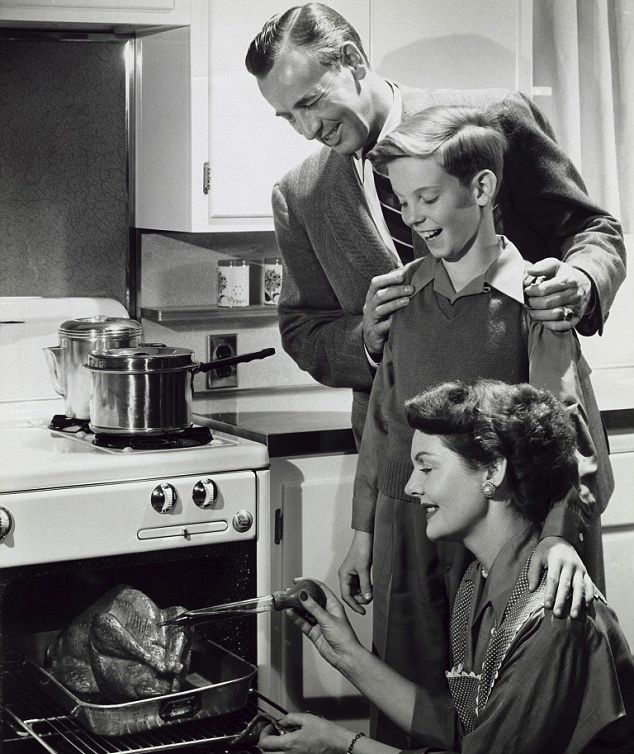

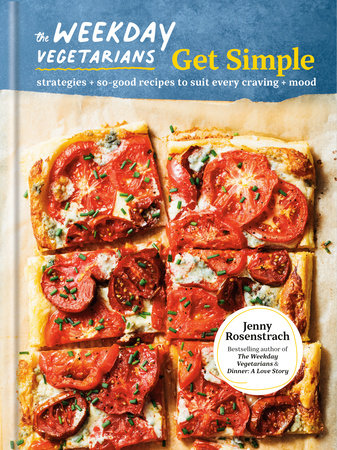
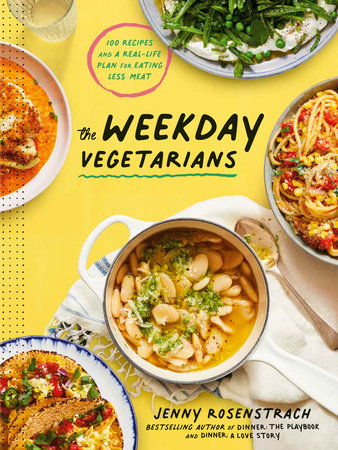
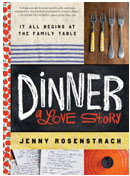
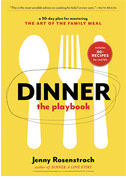


I thought this article was a good follow up as well:
http://theweek.com/article/index/267995/in-defense-of-family-dinner?utm_source=links&utm_medium=website&utm_campaign=twitter
This is something I struggle with a lot. Working with some disadvantaged kids last year, I saw a lot of families who did not have the ability to sit together for a meal, let alone have access to fresh ingredients. To talk to kids and parents like that about the importance of the family meal would have been insensitive and likely would have made them feel even more inadequate than they likely already were. That being said, I think the best you and I can do is to show that making time to sit together doesn’t have to be a big deal, or a fancy task. I think DALS does a great job at this, and it takes the spotlight away from fancy, Martha Stewart-type home meal presentations that make people feel bad about themselves.
Jenny – your response was great – get rid of the guilt and not make this all about women. Sadly, many of the examples in the study were single moms and that’s a whole other issue. My problem with the study (I’m just catching up here as I was traveling during the time this all hit the fan) is the straw man they set up: “ideal” meals, 3 hour extravaganzas, etc. We should not be thinking that unless we create a dinner party worthy masterpiece we’re not really cooking, and, frankly, I don’t think most people think that. Their examples of this detract from their point. Those of us who promote home cooking ran a gamut and your point about the canned lentil soup is a good one. Using a reasonable shortcut and some packaged items that are thoughtfully chosen is a great way to make home cooking work for the busy weekdays. That said, I bet your friend’s lentil soup was out of the price range for people on SNAP and limited budgets. The home cooking movement is just one thread of fixing this system. There is so much work to be done to help with food access and poverty relief in general, as well as continued and increased teaching in schools. But let’s not throw out the baby with the bath water as they seem to suggest.
Judging by all the cookery shows, books and blogs, one would be forgiven for thinking that Americans eat really well. Where’s the problem?
Judging by all the cookery shows, books and blogs, one would be forgiven for thinking that Americans all eat really well.
I feel like that study is actually addressing another issue – how difficult it is for low socio-economic families to make ends meet providing housing, childcare and food for their families.
I loved your response to it though – why is it the mom’s problem?
wow! what a great article. Mulling it all over. Thanks for sharing!
I’m with Rachael – the article is primarily about the socio-economic pressures of cooking home-cooked meals. None of the Room for Debate articles even touched on this aspect but instead provided “solutions” for affluent families. Here’s the quote that stood out to me: “The idea that home cooking is inherently ideal reflects an elite foodie standpoint. Romantic depictions of cooking assume that everyone has a home, that family members are home eating at the same time, and that kitchens and dining spaces are equipped and safe. This is not necessarily the case for the families we met.”
Amy & Rachel – Yes, you’re right. I should’ve mentioned that I was addressing only one small part of what is clearly a mammoth issue. This was not in any way done to dismiss socio-economic pressures, unpredictable work shifts, lack of access to fresh food in low-income neighborhoods, etc. I can’t pretend to offer solutions there in 300 words — but the guilt issue (yes limited mostly to parents who can afford the luxury of guilt from eating canned organic soup), seems to be something that is tangibly solve-able. Thanks to the rest of you, too, for your thoughtful comments.
^^^^
Yes to what Amy said. But despite that declaration, what are some of the studies conclusions on how to address this? Healthy food trucks? Healthy to-go meals from schools? How are these solutions helpful to those families for whom affordable food is one of their biggest obstacles?
Jenny, your response nailed it. I love thinking in terms of not being the same cook every night. Yes, Sunday you may have the time to roast a whole chicken – complete with homemade gravy. Tuesday night? You might be picking up a rotisserie chicken to shred up for tostadas. Neither is wrong – and both show effort!
Another perspective: http://www.huffingtonpost.com/linda-tirado/why-poor-peoples-bad-decisions-make-perfect-sense_b_4326233.html
And despite being a – so far – solidly middle class single mother, I do see Linda Tirado’s Point all too clearly …
I’m in the allergies column of living, I’ve always cooked at home, and during that time I’ve worked up a routine on shortcuts and planning. I don’t view cooking as a chore. While I understand those who do, I never have.
I’ve never liked Michael Pollan. Cooking is not rocket science, and sometimes it sounds like one needs to have an individual rice paddy in the backyard to cook rice.
I think that the struggle has two very important points. Women are burdened more than anyone with workload in job + home cooking AND it is very healthy and positive to have home cooked meals with family.
There is no simple answer, but your blog and book certainly help reduce the strain and make home meals more attainable for working parents (not to mention delicious). Thank you from the heart for all you do…
Leanne Brown wrote a cookbook called Good and Cheap and it is for a food stamp budget $4 a day. She ran a kick starter campaign and it is available online for free and they are printing copies to get them into the hands of the people who need them fir free. It is a great start and yes we all have to be a part of the solution. Anyone who wants to make eating a family meal a priority should be able to. And fast food shouldn’t be a cheaper option.
More related to your response Jenny. When my daughter started solids everyone I knew was doing their own baby food and I did too. Until one day when I picked up a jar of organic pureed pears and realized that it was actually cheaper to buy yhan to make and then I got to spend more time with my family. I got horrified stares whenever I pulled out a jar in public but really letting go of the guilt was the best thing I did.
Jenny, your point was excellently made – it shouldn’t all be on the shoulders of the woman (and that goes for all work in the home, from childcare to cooking) and one of the things I really enjoy about DALS is that you and your husband seem to have done a good job of sharing it all.
I think putting food on the table which is then rejected by your children is hard in any case, but I do think it gets easier. My daughter who is 5 willingly eats kale, octopus and olives and has been heard to ask for more salad. We are not there yet with our son (3) but we now know it takes hard slog and constant ‘exposure’ to new things to get your children to eat a variety of things, so are taking heart!
I feel strange weighing in on this topic, as I don’t have a family to cook for, but I did grown up with a mother who made it a priority to make a healthy meal for which we ate together as a family. Once my parents were empty-nesters, they divorced, suggesting to me that its the people around the table that matter the most in any meal, whether it was purchased for a dollar at Wal-mart and the prep was completed with a microwave or carefully procured from fancy artisan shop and prepared by a chef who has time to perfect the most complex of techniques. I’m annoyed at the guilt we put on people for simply doing the best that they can do. Glorifying the family dinner is so far from the actual issue.
And for me, as a single person living alone, I have a different set of challenges. I still have not figured out how to consume a loaf of bread before it goes bad, so i don’t buy bread. I would say that the food industry falls short in acknowledging that not every person is cooking for a family every night – evidenced by the lact of “Dinners for One” cookbooks available.
good point Kate! btw, you can freeze your bread and take out a a few slices/chunks at at time.
Why did that study not include a single instance of someone who felt positively about cooking for their family? Surely in the 150 families they followed there must have been someone who felt good about cooking. The fact that they only included the negative seems rather skewed to me. Also, the idea that family members complained when only one dish was served for dinner seemed overly emphasized as a negative. My kids frequently complain about dinner. They also get hot lunches at school that they don’t much like. Sometimes we run out of the snack foods they prefer and they have to eat something that is not their favorite. This does not kill them, but it is presented as a huge dilemma in the study. That sounds a lot like the food industry conceit that everyone should have what they want all the time and it’s a sad, or even morally reprehensible, thing when they don’t. That in and of itself makes me wonder what the ultimate source of the funding for this study was. Not wasting food is certainly a consideration, but again the article presents it as a negative that many mothers serve the same foods day in and day out. So do I. So do many moms, even those of us who cook from scratch frequently. We all have our crowd-pleaser meals and we all resort to them frequently because they work and this is not a bad thing, as the article implies. The mothers in the study felt bad because they were serving more processed foods too regularly and weren’t able to do the cooking they wanted to. And obviously, getting rid of cooking is the perfect way to address that problem. It’s interesting that the study highlights a number of problems – difficulty shopping, getting and using fresh fruits and vegetables, having an adequately equipped kitchen – and concludes that to solve them we have to kick scratch cooking to the curb. How about concluding that we need to address the lack of fresh produce in poorer neighborhoods, or the lack of adequate public transportation, or the food deserts that abound in poorer urban areas, or the way poor people are exploited by their fast food employers with crappy wages and crappier hours? I fail to see how getting rid of cooking alleviates any of these problems. And I agree with the earlier commenter who noted that the “ideal” meals presented here, the 3 hour prep extravaganza, really ignores the vast array of cooking possibilities, many of which are far simpler and more streamlined. Nobody cooks like that on a regular basis because it’s not sustainable for the long haul. How about training programs for utilizing food stamps in the most healthy and economic way? Or programs to begin community gardens to provide fresh produce for at least part of the year? Cooking is not the problem here: our willful blindness to the real issues surrounding poverty is at the heart of the issue. Cooking is just a casualty of a much bigger set of problems.
Thanks for sharing this. I probably would have missed it if you hadn’t. My article reading has been a casualty of parenting. So many thoughts on this:
1. I agree with all who have said that a lot of the problem here is poverty and the burden of the working poor. Cooking is a symptom of a much larger societal problem.
2. Sitting down together to a meal that is relatively health and affordable should be the goal, but even that can be challenging for folks due to #1.
3. Dinner does not have to be perfect- and something has got to give. If it’s scrambled eggs and toast on paper plates some nights, that’s ok. And we need to let people know that that is ok.
4. Bring back home economics in school for boys and girls! And while we’re at it, civics classes…
5. Women are under so much pressure to be supermom. I constantly feel inadequate- whether it be the fact that I get the birthday cake from a bakery rather than whipping up a picture perfect one from scratch, or that I’m not constantly creating fun things for them to do like everyone else on Pinterest or that I still haven’t had formal photos taken of my 18 month old (forget sending out birth announcements- I think that ship has sailed).
6. We need to start subsidizing the HEALTHY food to make it more affordable and accessible.
Jenny, thanks for the tip- I had not seen this; will be following your link shortly. I so appreciate your blog bec. it’s all I need to know, and points me to all else I need to know!
I’ve always enjoyed cooking, but cooking for a family with young children is a whole different experience than cooking for a couple of adults – the time pressures are different, the menu options are different, the experience is more stressful for so many reasons.
I still cook because I love to, – what I find stressful is menu planning, and time management to a lesser extent. I am forcing my husband and 4 year old to contribute to the menu planning and it’s making a huge difference. She still says ‘yuck’, but after involving her in dinners for 4 years, she can sit and chat and eat the bits she likes, which is marvellous. She can flip through cookbooks and point out meals she thinks look good, and she can help craft the grocery list, look at flyers, and choose the nicest produce in the shop. But it’s taken 4 years of concerted effort to get to this point (dinner:a love story has helped enormously with our sticking to the plan). Dinner can be pancakes, eggs, tomato soup from a can – so long as you’re together for one meal a day, you can transmit manners, cultural expectations, opinions and ethics and philosophies. And that’s the value here. That’s why we bother. I have faith that my kid will grow out of refusing veggies because she’s learning that eating veggies is normal, and she ate veggies until she turned four. My family growing up was working poor – the last week of the month was an anxious time, with oatmeal and toast for dinner, but we had the stability of knowing that we’d be together for half an hour per day, and that helps so much when coping with poverty, social stress, school, etc.
Nowadays, I cook as an act of love, but also necessity. My child has food allergies. If my child gets near a speck of her trigger foods, she could die. So it’s an act of love, but also our only alternative. Packaged foods could hurt her. Safe foods are also more expensive, we have to be brand-loyal, and can’t rely on sales to save. The scratch cooking savings get eaten up on the additional expenses with food allergies, but more importantly, I have to plan her meals and snacks because when we go to the mall or a party, there is no safe food there for her. So many of the options that put forward as ideas to help the food-insecure won’t work for food allergic children, and could seriously hurt them. It’s not an option for an estimated 1 in 13 school aged children, to buy school lunches or eat from food trucks. It’s a multi layered issue for me, far too complex to be address in a hundred articles. It’s a class issue, a cultural one, it’s gendered and about health and inclusion. My family is very child centred, which does not work for everyone, but having her at the table, as part of the conversation, is far more important than what’s being served. Beyond learning social skills, and the cultural transmission, she’s learning survival skills – for a food allergic child, it is a matter of survival.To avoid a fatal incident, you need to cook, clean, scrutinize foods, not share food… we model that along with everything else, so in that sense it’s not a burden, it’s a necessity. It’s life.
Jenny’s article asks why the food preparation/cooking responsibility lies only on the woman? Well, because even though it is 2014 and women have come far in many ways, we still live in a man’s world. We are not all Blessed with helpful husbands like Andy (and many of us are single uneducated mothers which is a whole other topic on its own). Yes, typical upper-class college educated women with children in our society (like Jenny and myself) can “have it all” but if our partners are unwilling to help with housework, shopping, errands, child care and cooking (and in my case all aspects of running a household including the inside and outside of the home), we are left with the choice of staying at home and doing it all alone or working and hiring nannies and others to cook for and raise our children and run our households. I choose to stay home and take care of and cook for my children because I do not want someone else doing it for me and I do not have a partner willing to take on his share of the work. If he did take on 50% of all of the household duties including cooking, I could have a successful career and cook for my children too.
Just ask any young female lawyer that was on the partnership track which hits right during the final (safe) childbearing years of her life what she chose to do and if she survived the male dominated firm life that long, what she did. If they made partner and happen to have young children, the majority have nannies and do not have time to cook even if they wanted to cook. Please forgive my late-night iPhone spelling and grammar and understand that throughout all of my rant that I love to be a mom and I love to cook and I love Jenny. Food is love…
I cook from scratch every night. And I think we should all get back to the basics of that. It is not difficult or time consuming. True, I don’t work and I enjoy cooking, but really, it just isn’t hard. I don’t use prepackaged food, other than some canned tomato sauces if I don’t have any of my own on hand, and frozen organic veggies. I cook mainly meals that take 20-30 mins. If I want something that entails time, I use my crock pot. Glorifying? No! I say we should get back to basics for health sake.